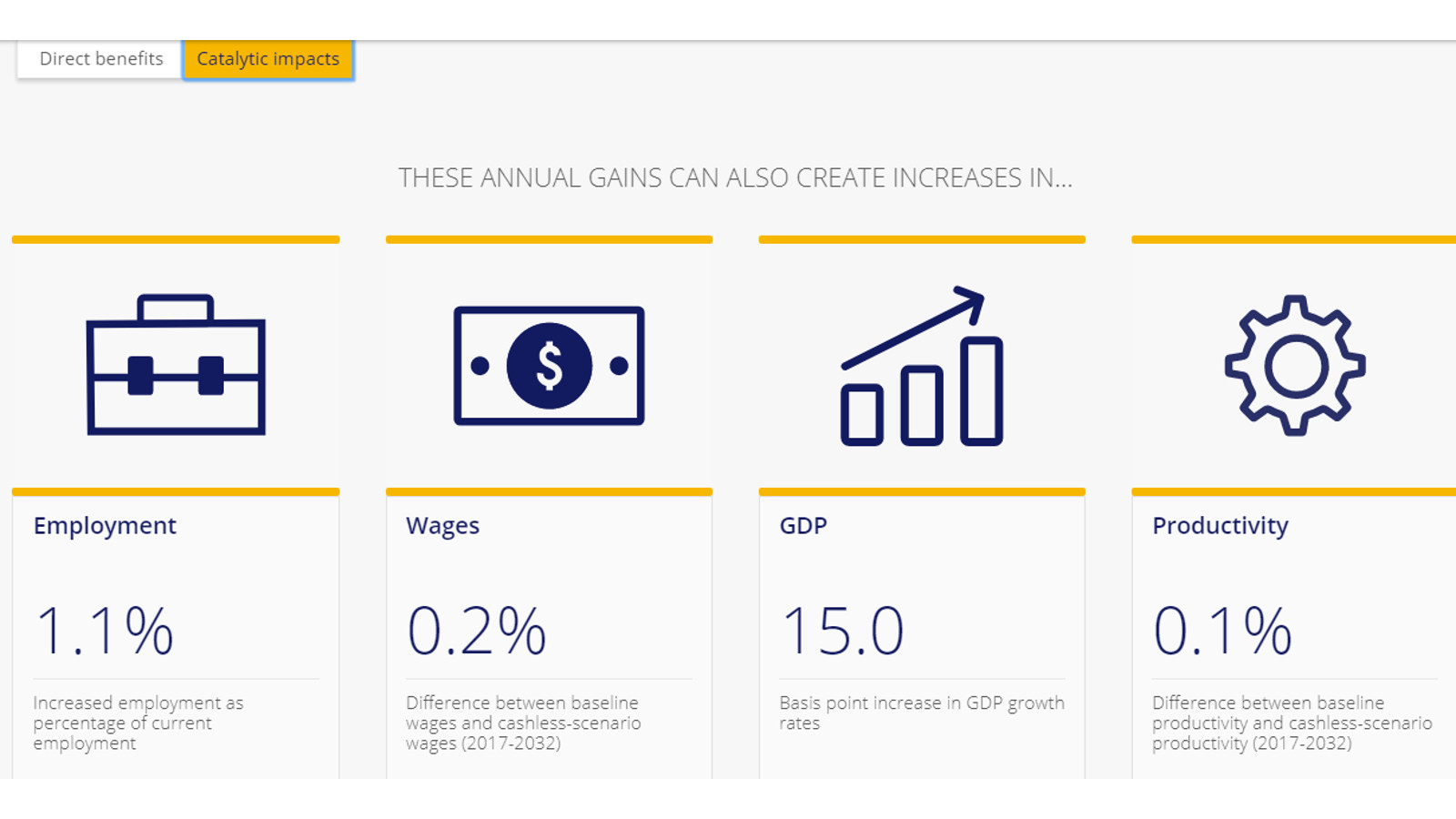We all have them. Those apps we open without thinking. Not because we need anything in particular, but because they feel… safe, in some…
Move to full digital payments could net Joburg over $3bn in benefits a year

Businesses, consumers and authorities in the city of Johannesburg could gain $3.4-billion in net benefits by moving 100% of financial transactions conducted in the city to digital payments, estimates a new study by Visa.
The report — The Cashless Cities: Realising the benefits of digital payments — was compiled by economics and evidence-based research firm Roubini ThoughtLab and released last week.
The data was initially drawn from a study of 3000 consumers and 900 businesses that Roubini ThoughtLab conducted in 2016 across six cities — Bangkok, Chicago, Lagos, Sao Paolo, Stockholm and Tokyo. Researchers looked at factors such as the cost-benefit impact of physical and digital money and the use and acceptance of digital money.
Roubini ThoughtLab then extrapolated the data from these cities — using demographic and economic data — to 94 cities around the world, including Johannesburg.
Consumer net benefits
The study classifies Johannesburg as a digitally maturing country — where 65% of transaction are performed digitally.
It estimates that should the city reach a level where 100% of all transactions are carried out digitally (via credit cards, electronic transfers or mobile wallets), consumers would gain just under $500-million in net benefits
These net benefits include time savings from not having to bank with cash or visit an ATM ($42-million), reduced payment fees ($24-million) and a reduction in cash-related crime ($79-million). On top of this as consumers will no longer have to keep large amounts of cash at home, they will be able to earn interest off cash kept in the bank ($100-million).
Business net benefits
While the costs of transitioning to digital payments (such as fees for accepting digital payments) are likely to set businesses back a total of $3-billion, these costs are likely to be more than offset by various other net benefits.
This would see businesses gain an estimated $1.7-billion in net benefits.
These include time savings made from processing incoming and outgoing payments ($4.4-billion) and from securing an extended customer base (both online and in-store).
In addition businesses could see a $300-million boost in revenue, as the report estimates that once businesses begin accepting digital payments they experience a 17% increase in revenue.
Government net benefits
The report estimates that the move to a full digital payments could help city authorities to achieve effective savings of $1.2-billion.
Of the $1.2- billion the move to digital payment systems would save the government $600-million through the cutting down of paperwork and productivity increases.
Savings of just under $500-million of the total $1.2-billion would be generated in lower criminal justice costs from reducing the incidence of cash-related crime.
In addition, the transition would see tax revenue increase by $87-million, with the accompanying economic growth expected to boost revenues by $29-million.
The study suggests there could be four main “catalytic impacts” — long term benefits over 15 years — resulting from these direct befits. These are an increase in employment, gross domestic product (GDP) and marginal increases in wages and productivity.
Catalytic impacts
The report estimates a 1.1% increase in employment as a percentage of current employment. This is explained in the report as being “derived from time savings generated among businesses and consumers, resulting in increased economic activity and productivity”.
The greater efficiencies associated with digital payments will see an estimated 15 basis point increase in GDP growth rates is expected to come from time savings generated among consumers, businesses and governments.
“This study demonstrates the substantial upside for consumers, businesses and governments as cities move toward greater adoption of digital payments,” Visa South Africa country manager James Simpson said in a statement.
“Societies that substitute digital payments for cash see benefits from greater economic growth, less crime, more jobs, higher wages, and increased worker productivity,” Simpson added.



